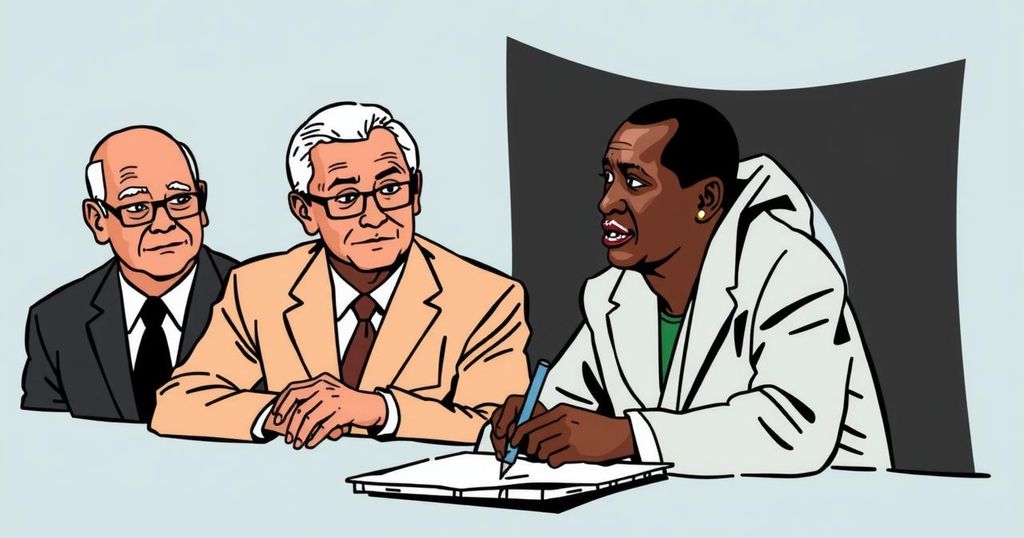The UN has introduced a plan to stabilize Libya by organizing elections, unifying competing governments, and reforming institutions. UN envoy Stephanie Koury highlighted the necessity of overcoming political deadlocks and restoring legitimacy to governmental entities. Despite local elections, national elections are still pending due to political disagreements, with Libya’s ambassador calling for accountability from the international community.
The United Nations has unveiled a comprehensive initiative aimed at stabilizing Libya by facilitating the organization of elections, unifying competing governments, and reforming national institutions. During a briefing to the Security Council, Stephanie Koury, the UN envoy to Libya, underscored the importance of this initiative, stating that it seeks to address the political deadlock and revive the legitimacy of Libya’s governmental framework.
Libya, a nation of approximately 6.8 million inhabitants, has faced significant turmoil following the 2011 overthrow of longstanding leader Moamer Kadhafi. Currently, the country is fragmented, with the recognized government situated in Tripoli and an opposing administration in the eastern region, supported by military figure Khalifa Haftar.
In her presentation, Koury elucidated the actions the United Nations Support Mission in Libya (UNSMIL) intends to undertake. This will include establishing an advisory committee designed to resolve electoral challenges and facilitate the conduct of general elections. While the timeline for these elections remains unspecified, the aim is to foster a more structured and inclusive political process.
Libya’s ambassador to the UN, Taher al-Sonni, expressed dissatisfaction with the current status, remarking that those addressing the Security Council owe an apology to the Libyan populace. He pointed out that the ongoing political stalemate is not due to logistical challenges but rather political disagreements.
Despite a ceasefire that concluded the civil conflict and a UN-mediated agreement that aimed for elections in December 2021, these plans faltered due to disputes regarding the legal framework for electoral proceedings. Although some regional elections, such as the one held in Misrata on November 16, 2024, have occurred, Libya has yet to see national elections take place.
Koury highlighted that Libya is contending with economic difficulties and external interference, emphasizing, however, that the nation possesses the capacity to transform into a pillar of stability and prosperity in the Mediterranean region. The UN also seeks to facilitate a dialogue regarding a unified national vision for Libya’s future.
Libya has been embroiled in conflict since the overthrow of Moamer Kadhafi in 2011, leading to a fractured political landscape dominated by rival factions. The UN recognized the need for a stable governance framework and initiated plans for national elections in December 2021, which were subsequently postponed due to legal disputes. Local elections have taken place, indicating potential for political continuity, but the overarching need for a national consensus remains pressing. The international community’s involvement has further complicated the internal dynamics, necessitating a strategic approach to stabilization.
In summary, the UN’s proposal to stabilize Libya emphasizes the necessity of conducting elections and resolving political divisions among competing factions. The establishment of an advisory committee is a crucial step forward in addressing electoral issues, though a definitive timeline for the elections is currently absent. The ongoing delays highlight the political challenges that Libya faces, underscoring the urgency of international support to achieve a unified and conducive environment for governance and democracy.
Original Source: www.al-monitor.com






